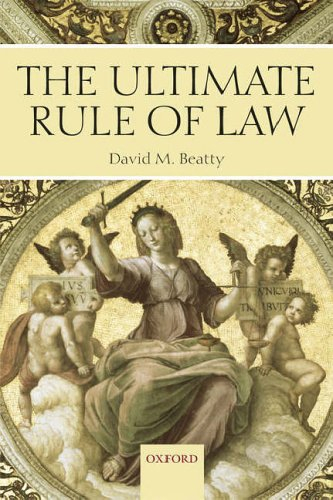
The Ultimate Rule of Law addresses the age-old tension between law and politics by examining whether the personal beliefs of judges come into play in adjudicating on issues of religious freedom, sex discrimination, and social and economic rights. Decisions by the Supreme Courts of India, Japan, Canada, the United States, Ireland, Israel, the Constitutional Courts of Germany, Hungary, South Africa, and the European Court of Human Rights on such controversial issues as government funding of religious schools, abortion, same sex marriages, women in the military, and rights to basic shelter and life saving medical treatment are evaluated and compared.
Beatty develops a radical alternative to the conventional view that in deciding these cases judges engage in an essentially interpretative, and thus subjective act, relying ultimately on their personal beliefs and political opinions. His analysis shows that it is possible to apply an impartial and objective method of judicial review, based on the principle of proportionality, which acts as an ultimate rule of law and is fully compatible with the ideals of democracy and popular sovereignty.
Controversially, Beatty concludes that although this method of judicial review originated in the United States, American judges generally appear to be far less inclined to this conception of constitutional adjudication than their counterparts in Europe, Africa, and Asia.